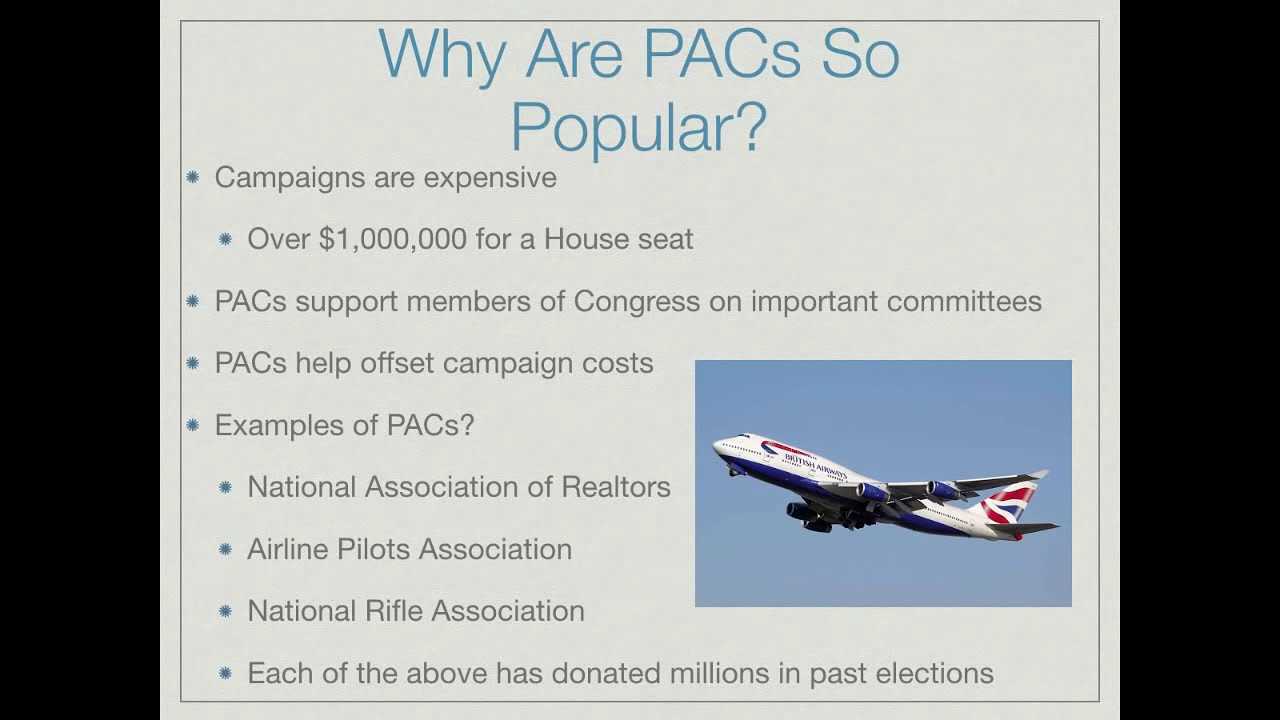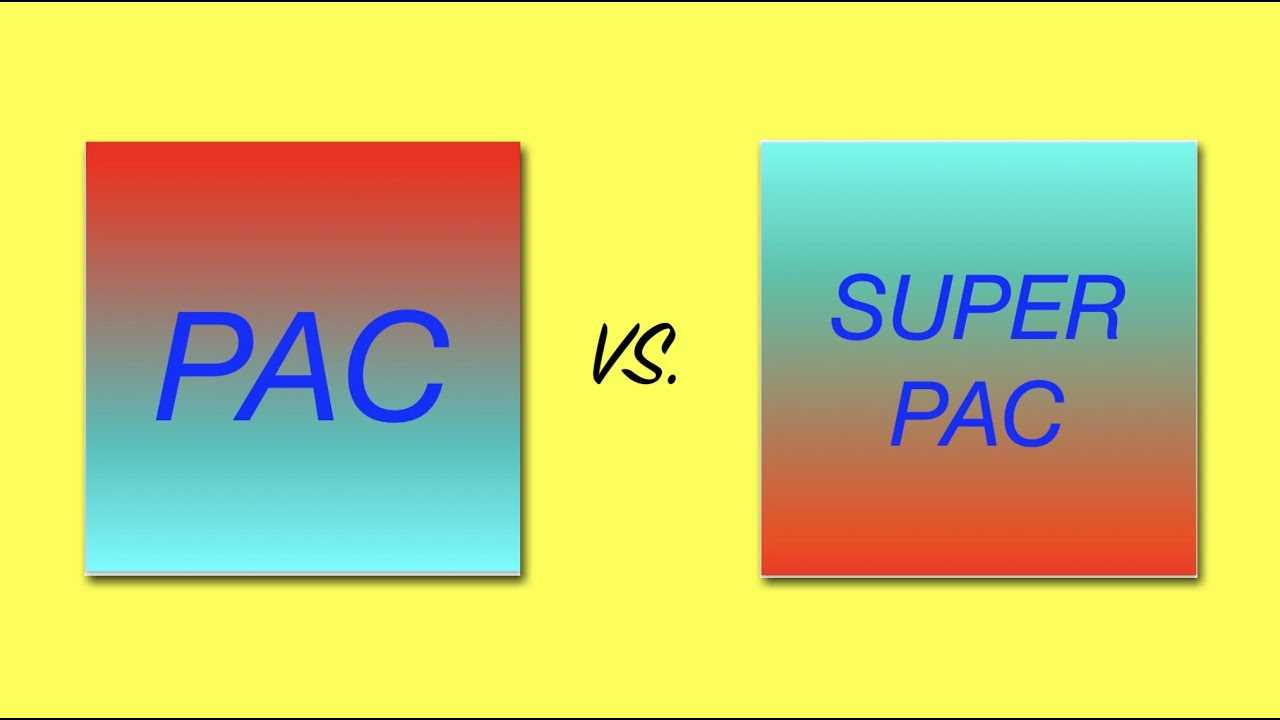Political Action Committee (PAC) Definition

A Political Action Committee (PAC) is an organization that is formed to raise and spend money to support or oppose political candidates, parties, or issues. PACs are a key component of the political landscape in the United States and play a significant role in shaping the outcomes of elections and influencing public policy.
Types of PACs
There are two main types of PACs: connected PACs and non-connected PACs.
Connected PACs are established by corporations, labor unions, trade associations, or other organizations that have a specific interest in influencing the political process. These PACs are directly affiliated with the organization and are funded by voluntary contributions from its members or employees. Connected PACs can contribute directly to candidates’ campaigns, subject to certain legal limits.
Non-connected PACs, on the other hand, are not affiliated with any specific organization. They are typically formed by individuals, interest groups, or ideological causes. Non-connected PACs rely on donations from individuals and can also contribute directly to candidates’ campaigns within legal limits.
PACs are subject to federal regulations and are required to disclose their donors and expenditures to the Federal Election Commission (FEC). This transparency allows the public to track the influence of PACs and hold them accountable for their actions.
Overall, PACs are an integral part of the American political system, providing a means for individuals and organizations to participate in the political process and support candidates or causes that align with their interests. However, the influence of PACs has also sparked debates about the role of money in politics and the potential for undue influence on elected officials.
The primary purpose of PACs is to pool the financial resources of individuals or groups who share common political interests and goals. By doing so, PACs can amplify their collective voice and increase their impact on the political process.
PACs engage in a variety of activities to achieve their objectives. They can contribute directly to political candidates’ campaigns, which includes donating money to their campaigns or funding independent expenditures that support or oppose a particular candidate. PACs can also engage in issue advocacy, where they promote or oppose specific policies or legislation.
One of the key functions of PACs is fundraising. PACs solicit contributions from individuals, corporations, labor unions, and other organizations. These funds are then used to support candidates or causes that align with the PAC’s goals. PACs must comply with campaign finance laws and regulations, which include restrictions on the amount of money they can raise and spend.
Another important role of PACs is to provide a platform for like-minded individuals to come together and collectively support their preferred candidates or causes. PACs allow individuals to pool their resources and have a greater impact than they would have individually. They also provide a way for individuals to engage in the political process and have their voices heard.
PACs can have a significant influence on elections and public policy. By contributing to candidates’ campaigns, PACs can help candidates gain the financial resources needed to run effective campaigns. PACs can also use their financial resources to fund advertising campaigns that promote or attack candidates or issues. This can sway public opinion and shape the outcome of elections.
Types of PACs: Super PACs
Super PACs are different from traditional PACs in several ways. While traditional PACs can only accept limited contributions from individuals, Super PACs can accept unlimited contributions from individuals, corporations, unions, and other organizations. This means that Super PACs can raise and spend millions or even billions of dollars to influence elections.
Super PACs are also not allowed to contribute directly to candidates or political parties. Instead, they can spend money independently to support or oppose candidates through advertisements, mailings, phone calls, and other campaign activities. Super PACs can also engage in issue advocacy, which involves promoting or opposing specific policies or legislation.
The Influence of Super PACs
Super PACs have had a significant impact on American politics since their creation. Their ability to raise and spend unlimited amounts of money has allowed them to play a major role in elections. Super PACs can fund extensive advertising campaigns that can shape public opinion and influence the outcome of elections.
Super PACs have also been criticized for their lack of transparency. While they are required to disclose their donors, some Super PACs have exploited loopholes to hide the true source of their funding. This has raised concerns about the influence of wealthy individuals and special interest groups on the political process.
| Pros of Super PACs | Cons of Super PACs |
|---|---|
| Super PACs can provide a platform for individuals and organizations to express their political views and support candidates or issues they believe in. | Super PACs can potentially distort the democratic process by allowing wealthy individuals and special interest groups to have an outsized influence on elections. |
| Super PACs can fund extensive advertising campaigns that can help educate voters and increase voter turnout. | Super PACs can create an uneven playing field by allowing certain candidates or issues to benefit from large amounts of funding, while others may struggle to compete. |
| Super PACs can provide financial support to candidates who may not have access to traditional sources of campaign funding. | Super PACs can contribute to the negative tone of political campaigns by funding attack ads and spreading misinformation. |
An Overview of Super PACs and Their Influence in Politics

A Super PAC, or a Super Political Action Committee, is a type of political action committee that can raise unlimited amounts of money from corporations, unions, and individuals. Unlike traditional PACs, Super PACs are not allowed to contribute directly to political candidates or parties, but they can spend unlimited amounts of money on independent expenditures to support or oppose candidates.
Super PACs became prominent after the Supreme Court’s Citizens United decision in 2010, which ruled that restrictions on independent political expenditures by corporations and unions were unconstitutional. This decision opened the floodgates for Super PACs to raise and spend vast amounts of money in elections.
Super PACs also have the ability to spend unlimited amounts of money on independent expenditures, which can include advertising, direct mail campaigns, and other forms of political communication. This allows Super PACs to have a significant impact on elections by promoting or attacking candidates without coordinating with their campaigns.
Another important aspect of Super PACs is their disclosure requirements. While Super PACs are required to disclose their donors, they can also receive funds from “dark money” sources, such as nonprofit organizations that are not required to disclose their donors. This lack of transparency has raised concerns about the influence of undisclosed money in elections.
Overall, Super PACs have become a major player in American politics, with their ability to raise and spend unlimited amounts of money. They have the potential to shape the outcome of elections and influence the political landscape. However, their influence and the lack of transparency in their funding have also raised concerns about the fairness and integrity of the electoral process.

Emily Bibb simplifies finance through bestselling books and articles, bridging complex concepts for everyday understanding. Engaging audiences via social media, she shares insights for financial success. Active in seminars and philanthropy, Bibb aims to create a more financially informed society, driven by her passion for empowering others.
